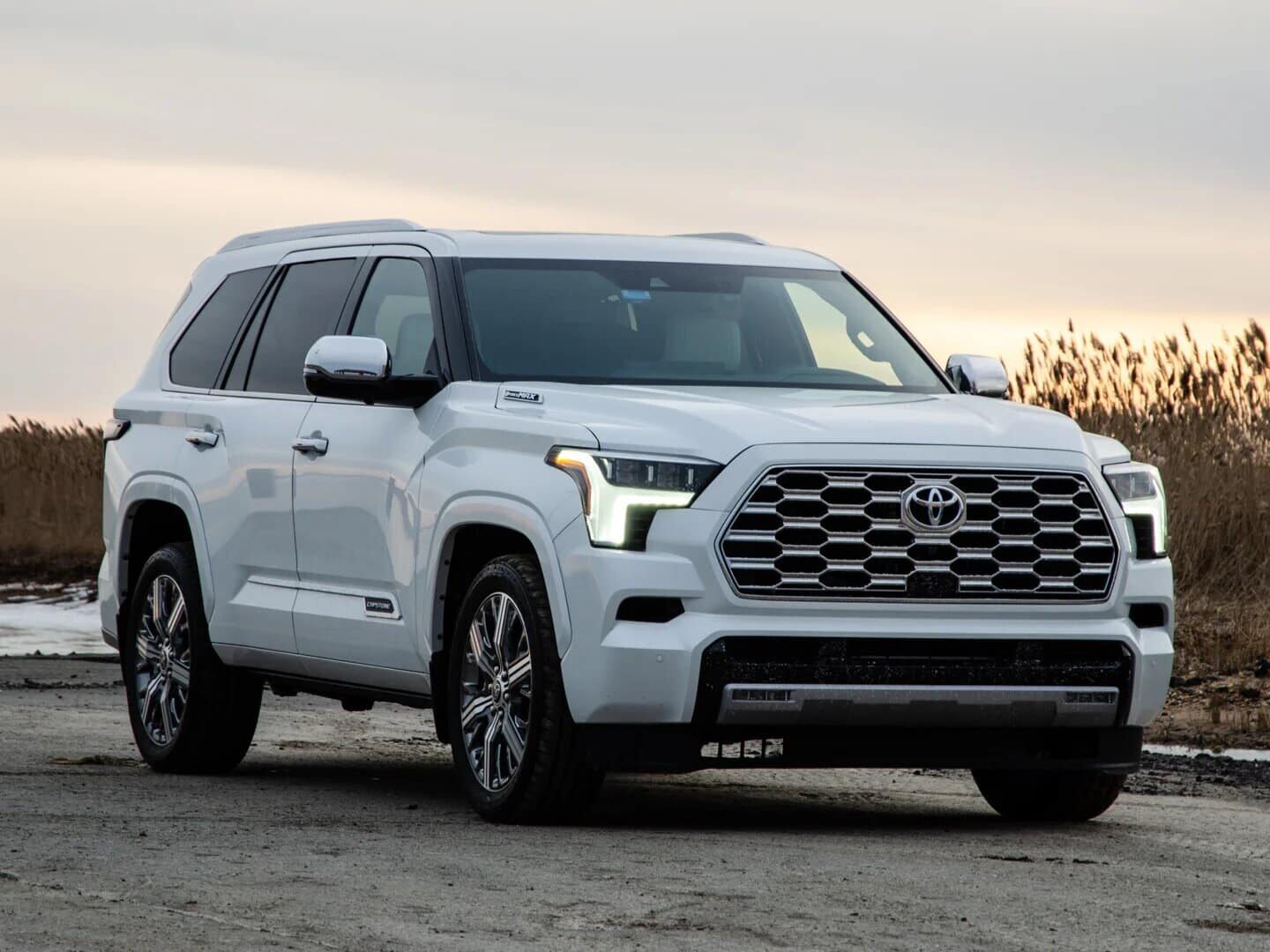Toyota’s foray into the full-size SUV market, epitomized by models like the Sequoia, has faced challenges in securing a foothold against competitors. Despite the Toyota brand’s strong reputation for reliability and innovation, the full-size SUV segment has proven a tough nut to crack. Given these difficulties, the question arises: how long will Toyota persist in producing its less popular full-size SUV offerings?

Market Performance and Sales Trends
Sales figures for Toyota’s full-size SUVs, particularly the Sequoia, have lagged behind industry leaders such as the Ford Expedition, Chevrolet Tahoe, and GMC Yukon. For instance, in 2023, the Sequoia sold around 13,000 units in the U.S., a stark contrast to the Expedition’s approximately 80,000 units and the Tahoe’s 90,000 units. This disparity highlights the uphill battle Toyota faces in this market segment.
Strategic Shifts and Product Updates
Toyota has a history of persistence and innovation. Despite the Sequoia’s struggles, the company hasn’t shied away from updates and redesigns aimed at capturing market share. The 2023 Sequoia, for example, received significant updates, including a new hybrid powertrain, improved towing capacity, and enhanced technology features. These changes align with broader automotive trends towards fuel efficiency and advanced connectivity, aiming to appeal to a modern consumer base.
Competitive Landscape and Market Dynamics
The full-size SUV market is characterized by brand loyalty and entrenched preferences, which makes it challenging for new entrants or less established players to gain traction. Brands like Ford and Chevrolet have long dominated this segment, partly due to their deep-rooted presence and continuous model improvements that cater specifically to the needs and desires of full-size SUV buyers.
Toyota’s strategy in this competitive landscape involves leveraging its strengths in hybrid technology and reliability. However, despite these strengths, the brand’s identity is more closely associated with smaller SUVs, sedans, and hybrid vehicles, which might not resonate as strongly with full-size SUV enthusiasts who prioritize power, space, and traditional V8 engines.
Corporate Vision and Sustainability Goals
Another crucial factor influencing Toyota’s decision on the future of its full-size SUVs is the company’s overarching commitment to sustainability. Toyota has been a pioneer in hybrid technology with models like the Prius and is making significant investments in electric vehicles (EVs). As the automotive industry moves towards greater electrification, Toyota’s focus might increasingly shift towards developing electric SUVs and away from traditional gasoline-powered full-size SUVs.
Potential Pathways Forward
Considering these factors, several pathways could shape the future of Toyota’s full-size SUV production:
Continued Investment and Redesigns: Toyota might continue to invest in the Sequoia and other full-size SUVs, introducing more substantial redesigns, advanced features, and hybrid or electric powertrains to capture a niche market segment.
Strategic Pivot to Electric SUVs: Leveraging its expertise in hybrid and electric technology, Toyota could pivot towards developing full-size electric SUVs. This strategy would align with global trends towards EVs and could help Toyota establish a new foothold in the market.
Phasing Out and Focus on Core Strengths: Toyota might decide to phase out its full-size SUV offerings gradually, focusing instead on its strengths in smaller SUVs, hybrids, and sedans. This approach would align with the brand’s identity and market performance, redirecting resources to more successful and promising segments.
Conclusion
The longevity of Toyota’s full-size SUV production hinges on multiple factors, including market performance, competitive dynamics, and the company’s strategic vision. While Toyota’s resilience and capacity for innovation suggest that it may continue efforts to revitalize its full-size SUVs, the shifting automotive landscape towards electrification presents a compelling case for a strategic pivot. Ultimately, Toyota’s decision will likely balance current market realities with future aspirations, determining whether its full-size SUVs will remain a staple or become a chapter in its storied history.
